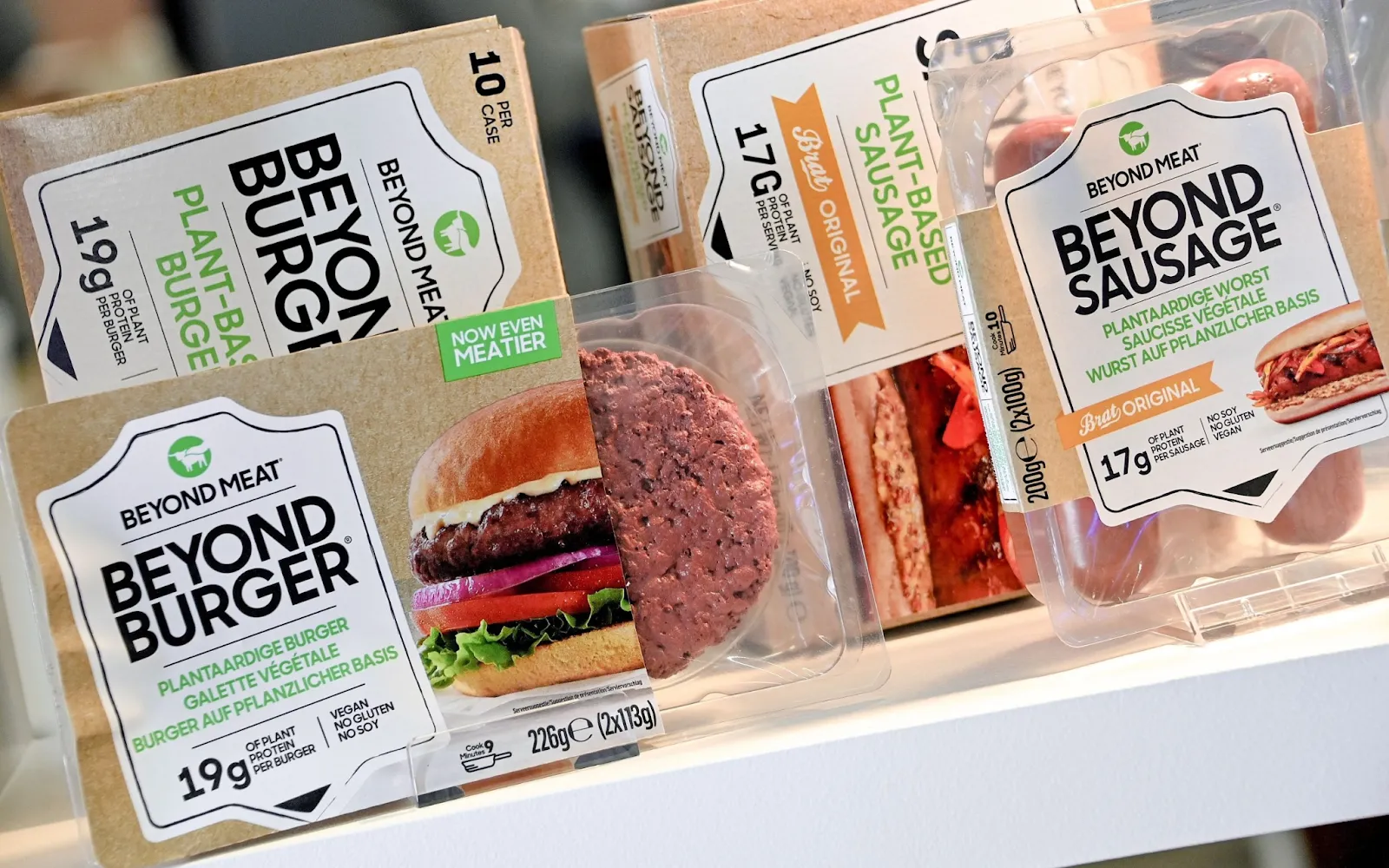Despite its sales dropping more than 20% over the past year, Beyond Meat posted a narrower-than-expected loss for its fourth quarter on Thursday.
During after-hours trading, the company's shares rose 14%.
Based on a survey of analysts by Refinitiv, here's what the company reported compared with what Wall Street expected:
- Net loss per share: $0.05 compared to $1.18 expected
- Revenue: $79.9 million compared to $75.7 million expected
Compared with last year's $80.4 million, or $1.27 per share, Beyond's net loss for the fourth quarter was $66.9 million, or $1.05 per share.
It is estimated that the company's margins increased by 14 percent as a result of shrinking its co-manufacturing footprint and better managing the production staffing levels, according to Ethan Brown, the company's CEO.
There was a 20.6% drop in net sales to $79.9 million. It sold 16.9% fewer pounds of meat substitutes in the quarter than it did a year ago.
There has been a slight decline in demand for meat alternatives across "all channels" of the company. It has responded by offering discounts on its products to entice customers who are hampered by persistently high inflation by offering discounts on its products. Within the quarter, Beyond's net revenue per pound fell by 4.4% compared with the same quarter last year.
A decline of 20.9% in U.S. sales was attributed to weaker demand in both the grocery and food service segments of the company. A similar decline in revenue was reported by Beyond outside of the U.S., which was primarily caused by a steeper decline in grocery sales.
Additionally, the company is forecasting that its sales will continue to shrink for the rest of the year as well.
A drop of 1% to 10% in sales is projected for Beyond's revenue in 2023, which ranges from $375 million to $415 million. There was a wider range of expectations, from $322 million to $496 million, on Wall Street.
In the second half of 2023, Beyond's primary business goal will be to become cash-flow positive, rather than to grow sales, rather than to increase sales. As the company continues to grow, its gross margins are expected to remain in the low double digits and increase sequentially throughout the year as well.
Since the outbreak of the pandemic, Beyond, and the broader meat-alternative category have been struggling hard for more than a year and a half, after seeing demand soar early in the outbreak. After trying the expensive meat substitutes, consumers were not able to stick with the products as food prices continued to rise as a result of inflation.
“According to Lubi Kutua, Chief Financial Officer, "We believe persistently high inflation, a slowing economy, increased competition and trade-down behavior by consumers among protein are all negatively impacting the growth for our category and brand, but we do believe this is transitory."
As a result, Beyond has shifted away from its original strategy of "growth above all," Brown says, to preserve cash, reduce inventory, and aim for profitability.
The company completed two rounds of layoffs last year, which resulted in the reduction of more than a fifth of its workforce. Beyond Jerky is a joint venture with PepsiCo, and as part of the joint venture, the company plans to restructure its operational activities for Beyond Jerky.
There have been other companies in the plant-based meat category that have been forced to make similar decisions as a result of the drop in demand. It has been reported that Impossible Foods is cutting 20% of its staff. Last year, the company laid off 6% of its staff. Meanwhile, Kellogg scrapped its plans of spinning off its plant-based unit, which includes Morningstar Farms, and potentially selling it in the future.

Subscribe to our newsletter!
As a leading independent research provider, TradeAlgo keeps you connected from anywhere.








